On March 30, the Center for International Security and Strategy (CISS) at Tsinghua University, in collaboration with the U.S.-China Education Trust (USCET), held the third plenary session of the “Gen Z Youth Dialogue: Finding Our Common Ground” series. This session was hosted by Madelyn Ross, President of USCET, and organized by CISS Youth. The event featured Robert Sutter, a professor of practice at the Elliott School of International Affairs at George Washington University; Professor Da Wei, Director of CISS; Xiao Qian, Deputy Director of CISS; and Mr. Sun Chenghao and Ms. Dong Ting, assistant researchers at CISS. Several outstanding youth representatives from both China and the United States also participated. The series aims to provide a platform for young people from both countries to engage in dialogue, exchange ideas on issues such as education, energy, environment, and economy, and foster mutual understanding.
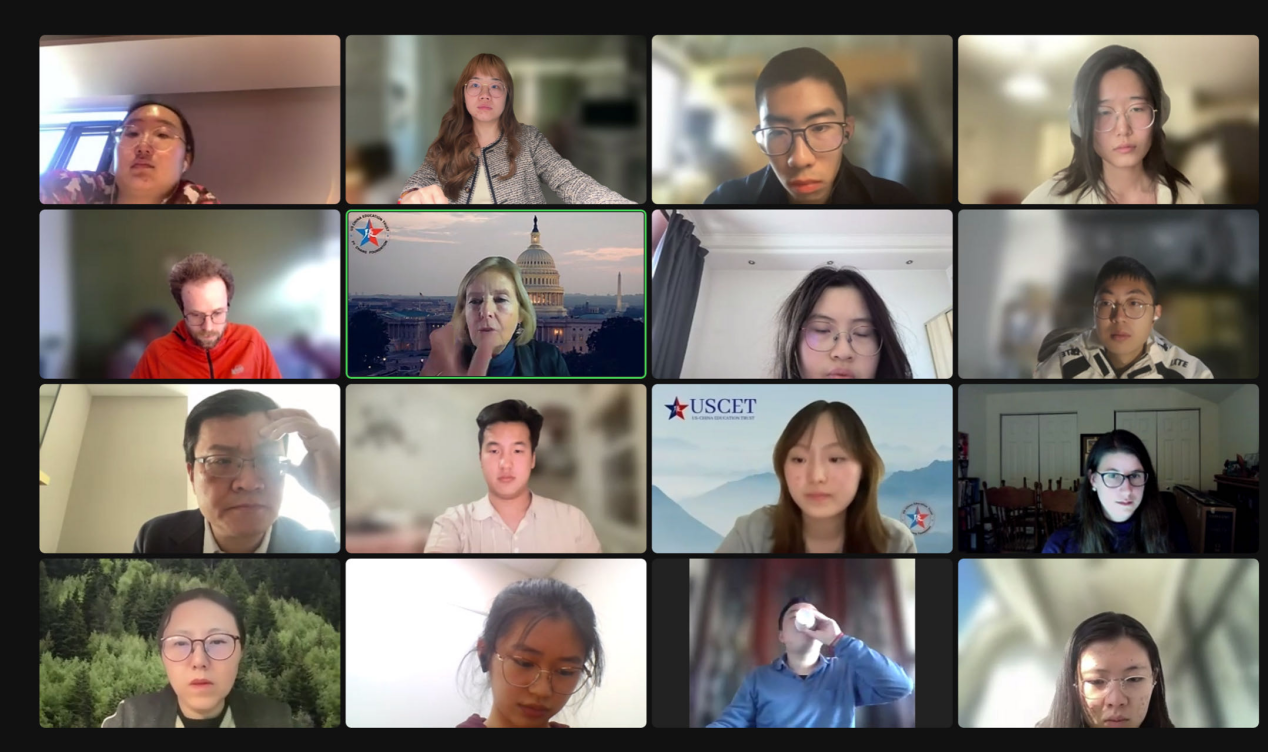
After the welcoming remarks by Madelyn Ross, student representatives from four groups—Education, Environment, Economy, and Energy—reported on their group’s progress, challenges, plans for the next steps, and suggestions for fostering consensus between China and the U.S.
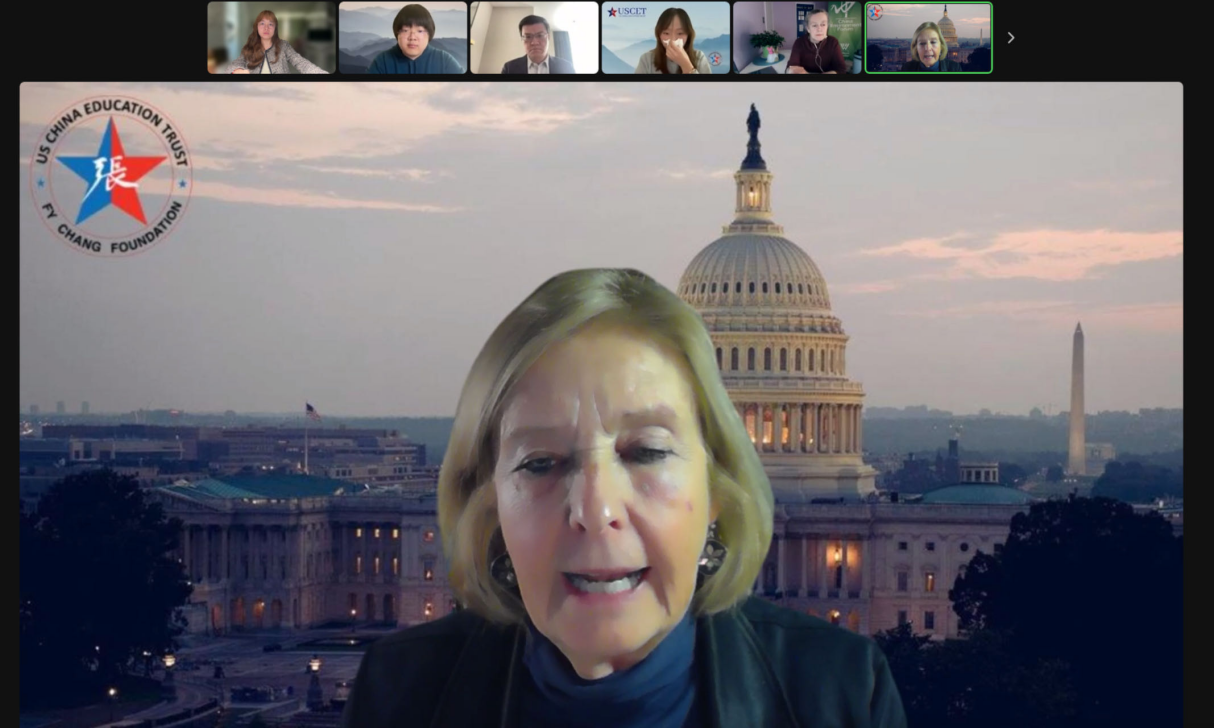
In the Education group’s report, Zhang Muye and Zhang Ziye introduced their work in March. The group focused on the theme “Current Challenges for U.S. Students Coming to Study in China,” planning to interview 10 U.S. students who came to China for their studies after 2022. Based on these interviews, they aim to compile a practical guide for U.S. students considering studying in China. To date, they have completed interviews with 4 students and produced the first interview video. The group plans to complete the remaining 6 interviews and finalize the “Practical Guide for U.S. Students Coming to Study in China” by the end of April 2024.
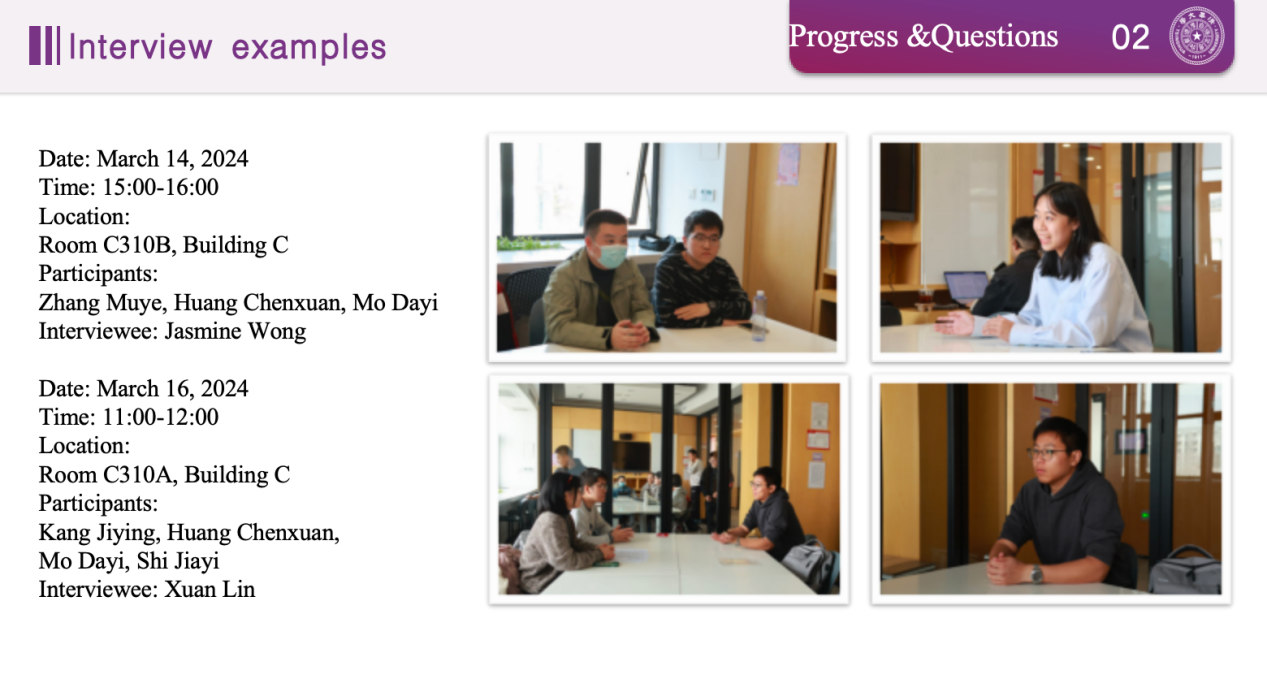
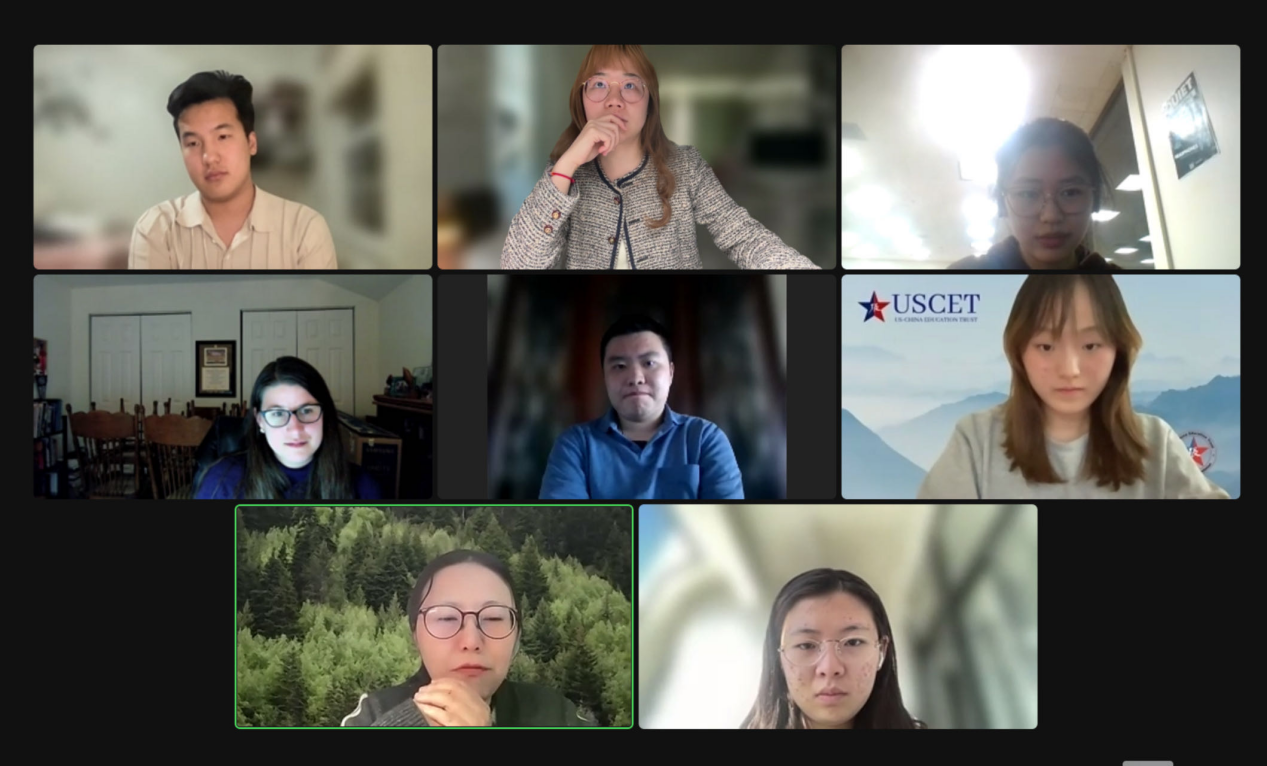
In the Environment group’s report, Matthew Willis and Yang Haoting shared their progress. After the previous three dialogues, the group developed a detailed plan around the theme “Food Waste in University Cafeterias and its Impact on Climate Change.” Their work includes interviews with faculty from campus carbon-neutrality and sustainability departments, cafeteria staff, and NGO leaders, as well as conducting a student survey. The group intends to provide feasible suggestions based on their findings and collaborate with relevant authorities and student organizations to tackle food waste in university cafeterias. They will also publish a comprehensive research report on social media platforms.
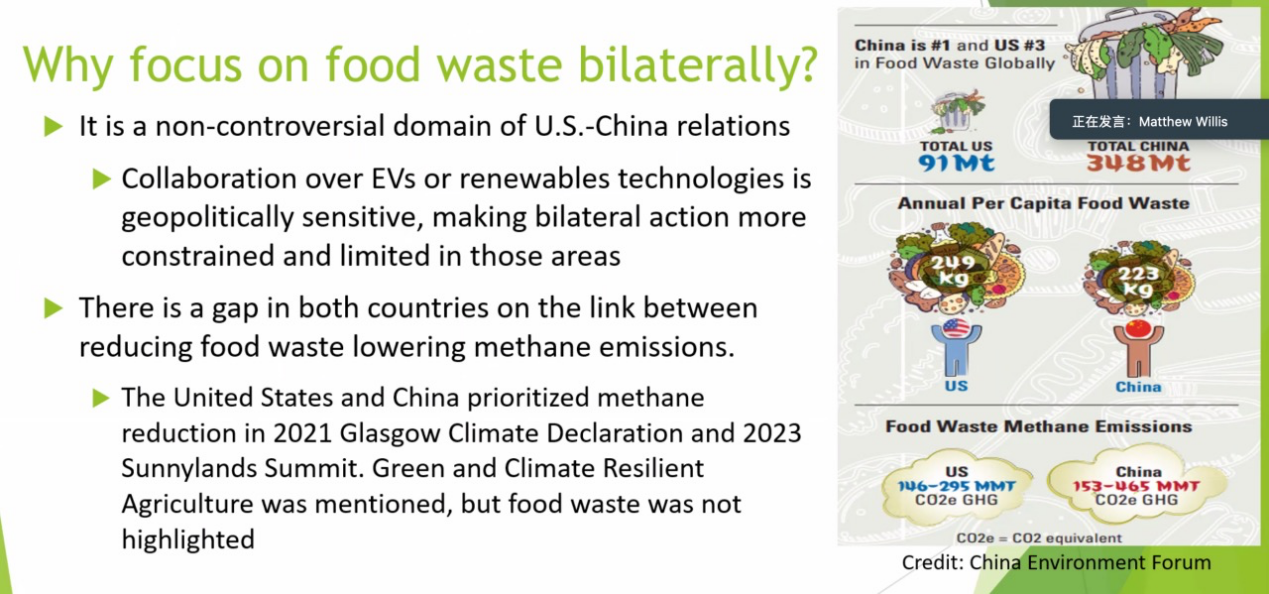
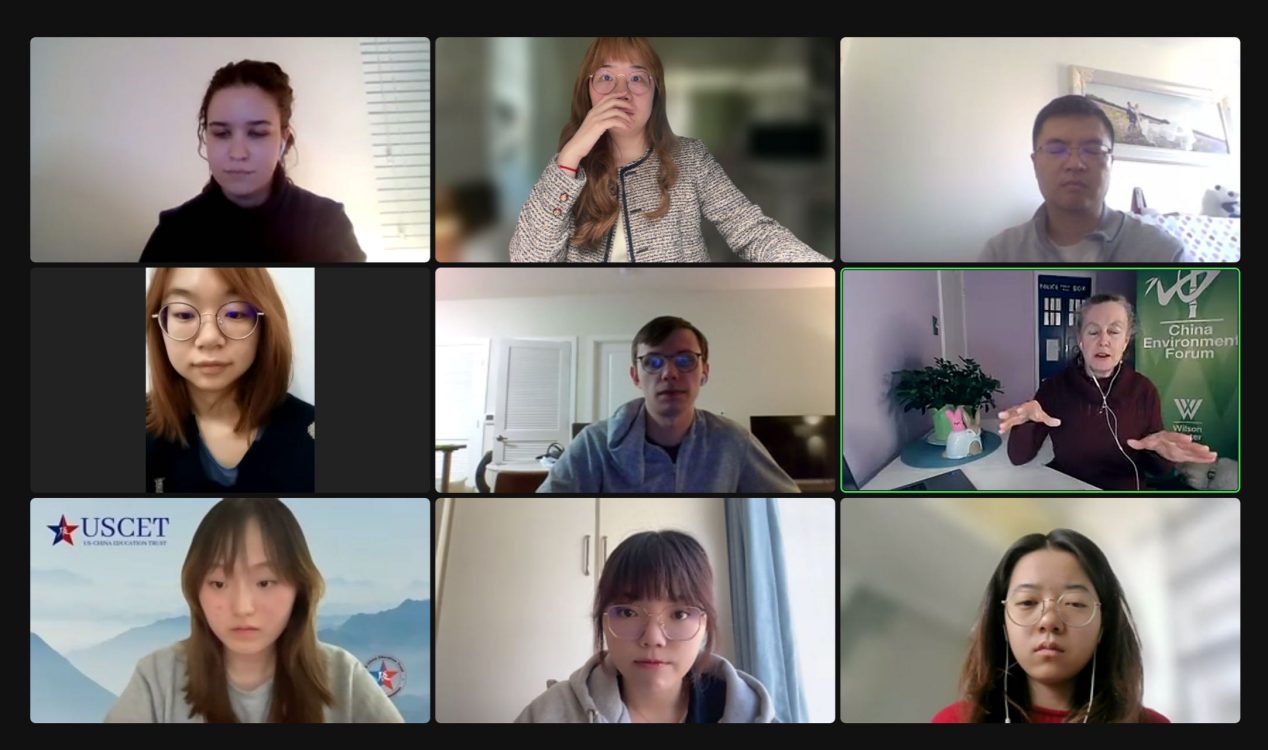
In the Economy group’s report, He Zhijun shared the latest progress of their collaborative research. Over the past month, the group held two internal discussions to refine their theme, “Exploring the U.S.-China Cooperation Model in Vietnam’s Electric Vehicle Industry under the RCEF and IPEF Economic Cooperation Framework.” Group members conducted individual research and completed the first phase of their tasks. During this session, the group decided to focus on the core issue, “How to Find Foundations for Cooperation Amidst Competition,” in the next phase. They will employ internal discussions and expert interviews to propose recommendations from U.S. and Chinese youth representatives.
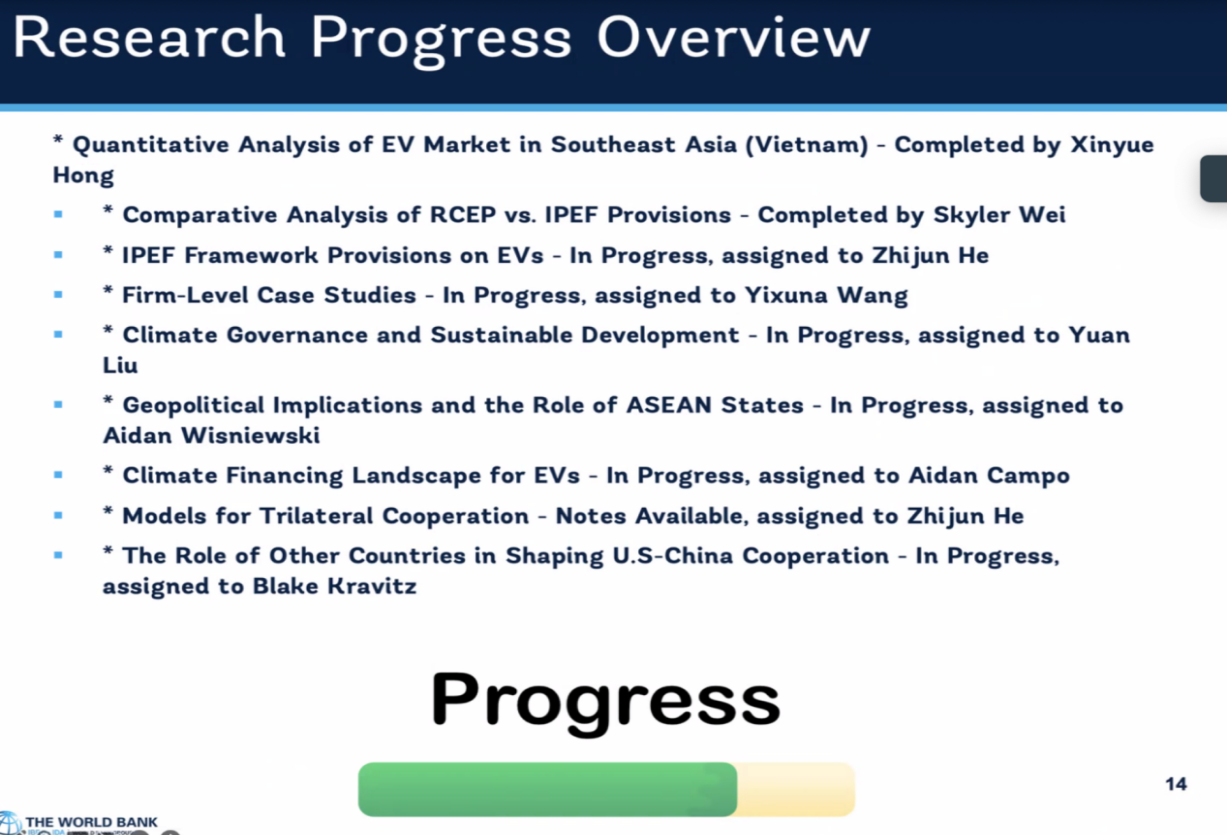
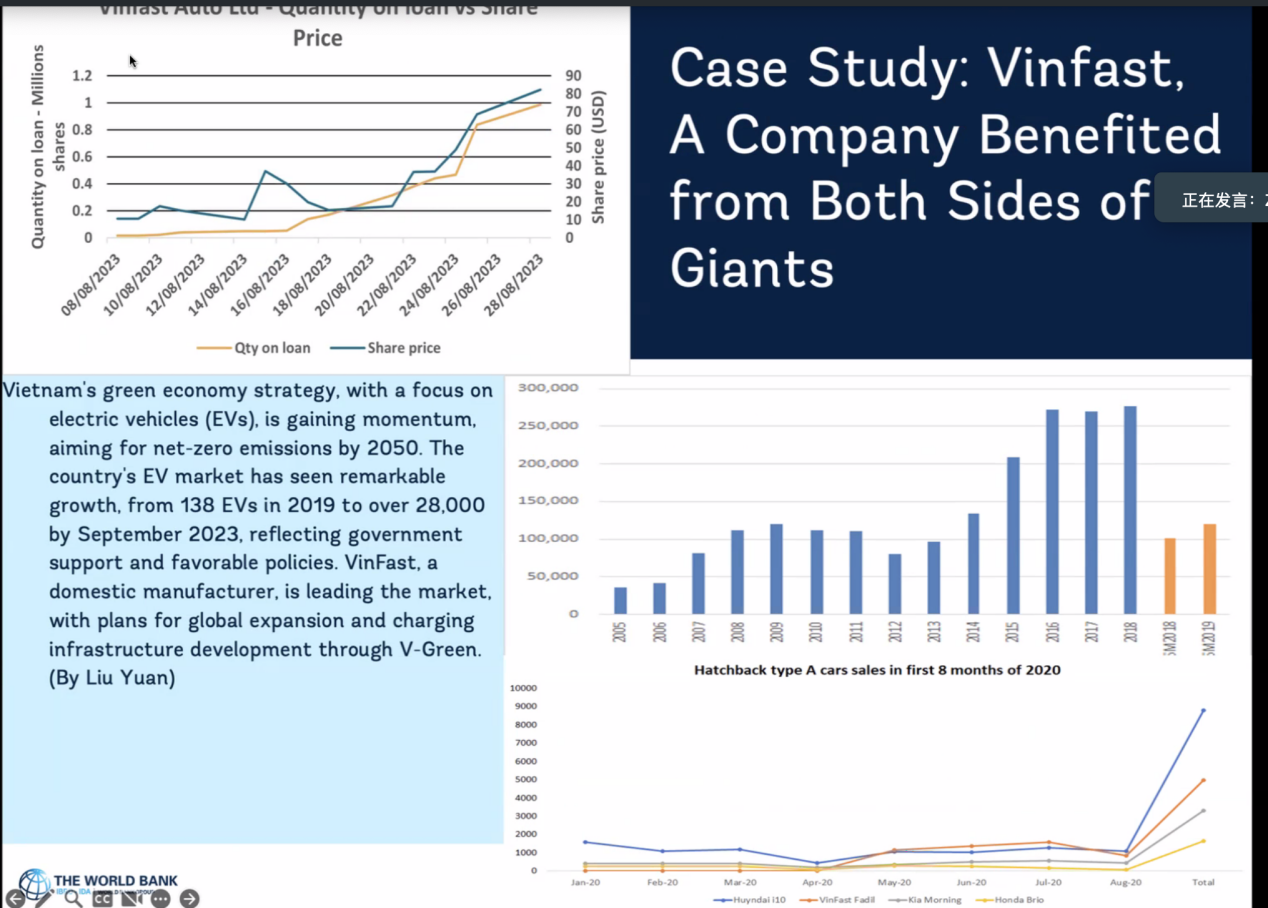
In the Energy group’s report, Yuan Yuhang and Li Yifang shared their views. Despite both China and the U.S. striving to achieve energy transformation under decarbonization goals, the competition between the two countries in the energy sector presents challenges for cooperation. The group identified battery recycling as a common challenge for both countries, with a potential foundation for political cooperation. Lithium-ion batteries, widely used in green energy industries such as solar energy and electric vehicles, face environmental issues due to incomplete recycling technologies and systems. Against the backdrop of promoting a domestic circular economy, the group plans to explore the necessity of improving resource utilization efficiency, address technical difficulties in battery recycling, and seek possible cooperation pathways between China and the U.S.
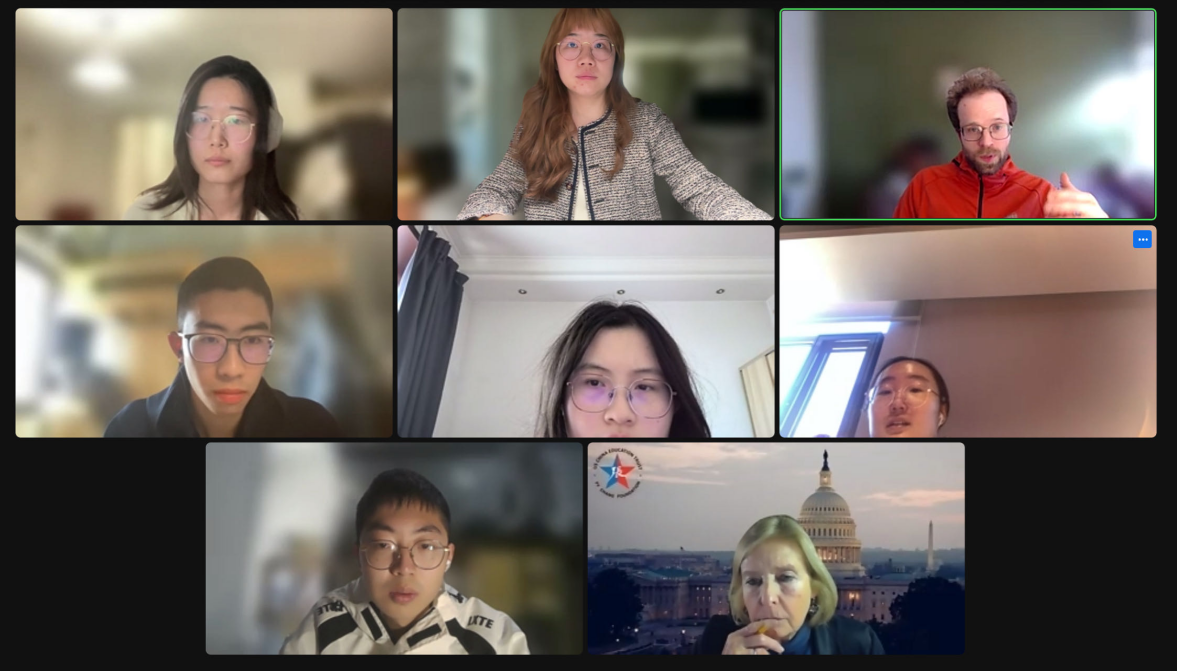
Professors Da Wei, Emily Matson, Assistant Teaching Professor at the Edmund A. Walsh School of Foreign Service, Michael Davidson, Assistant Professor at the School of Global Policy and Strategy and Department of Mechanical and Aerospace Engineering at the University of California, San Diego, and Jennifer Turner, Director of the China Environment Forum at the Wilson Center, provided valuable feedback and suggestions on the students’ reports.
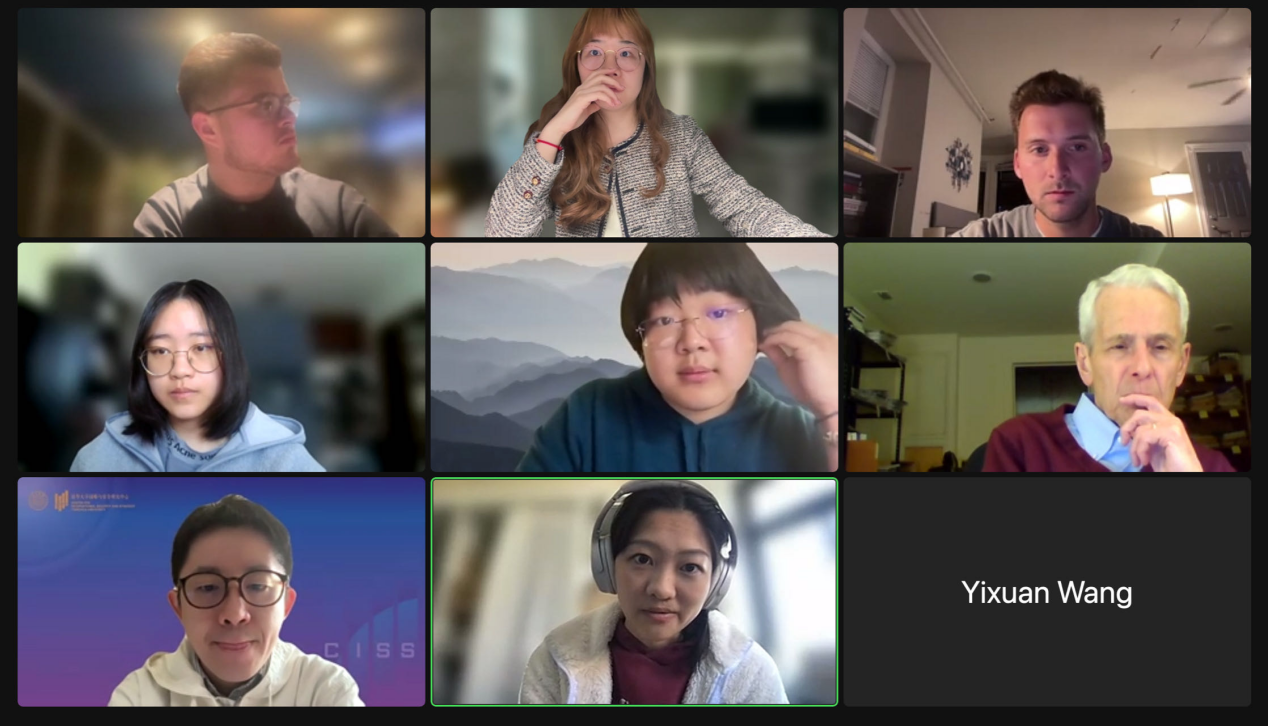
Finally, Madelyn Ross, Professor Robert Sutter, and Professor Da Wei concluded the plenary session, highly praising the achievements made by the youth representatives over the past month and expressing anticipation for the continuation of the series. The next round of dialogue is expected to take place at the end of April 2024.
